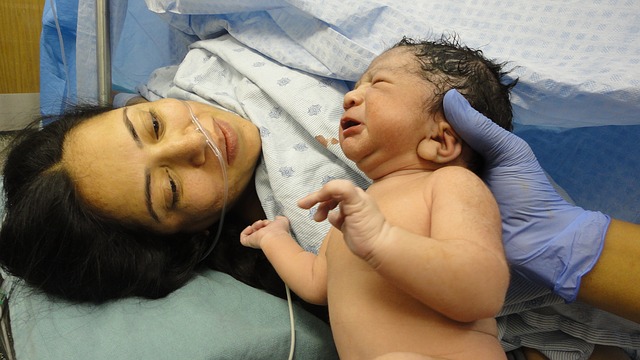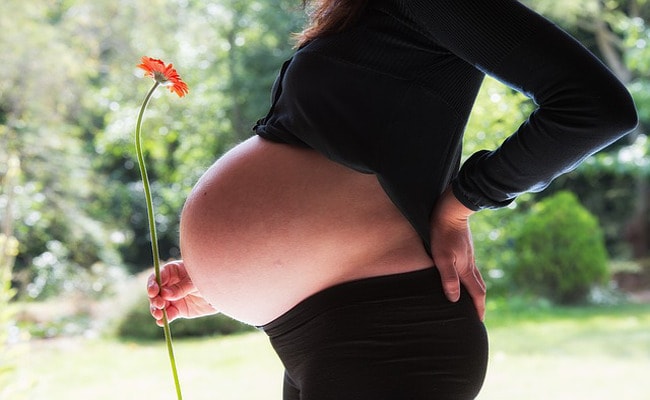Is it common to feel abdominal pain during pregnancy? What are some of the common causes? We speak to an expert to find out more.
1. Braxton Hick’s contraction
Braxton Hick’s contraction means the sporadic uterine contractions, meaning the uterus becomes hard from time to time, usually lasts for a few seconds and then the uterus relaxes spontaneously.

Some mothers find this painful and complain of generalized abdominal pain extending over the whole uterus. This starts in early pregnancy but usually, the mother feels it only beyond 20 weeks or so.
Treatment: The mother needs to be reassured and explained that this is a normal phenomenon of the pregnant uterus. However, if the uterus remains contracted, can be made out by feeling a hard uterus such that its shape can be clearly made out. The first step would be to rest and usually, the uterus will relax again. However even with rest if it does not relax and the uterus continues to remain contracted it is advisable to consult the obstetrician.
2. Preterm labour
Abdominal pain that spreads throughout the tummy and comes at regular intervals may be premature labour pains. With complaints of abdominal pain in advanced pregnancy (meaning beyond 28 weeks) preterm labour needs to be ruled out. For preterm labour, the pain comes in a timed fashion and the interval keeps getting shorter.
The pain itself will last for 2 to 3 minutes and then subside for a while before occurring again. The time interval which initial may be an hour or so keeps getting shorter till the pain keeps coming back every half an hour or even more frequently. This may be associated with some bloody discharge. This is an ominous sign and the patient will need to be hospitalised.
Treatment: Doctors would treat this depending on weeks of gestation. Usually, some medication to stop the uterine contraction would be given along with steroids for fetal lung maturity.
3. Abruptio placentae
This is a very serious condition and the patient needs to seek medical advice as this is a serious obstetric emergency. The patient feels a lot of abdominal pain which unlike preterm labour is a continuous pain without any relief. This may be accompanied by bleeding per vagina.
The uterus feels very hard and the mother often cannot feel the baby’s movement. This is serious as the baby is in danger. This happens due to the premature separation of the placenta from the uterine bed. Normally the separation of the placenta from the placental bed happens only after delivery.
Treatment: The treatment for this is timely diagnosis followed by delivery of the baby (depending on the severity of abruption). In some cases, once fetus well-being is confirmed usually by ultrasound conservative management may be possible. Abruptio placentae have been often seen to be associated with high blood pressure in pregnancy. Another cause of Abruption is as a result of a road traffic accident.
4. Urinary tract infection
Another very common reason for abdominal pain is Urinary tract infection (UTI). UTI is quite common in pregnancy. In the majority of the cases, the symptoms may be mild as the feeling of pain while passing urine, frequency of urination, urgency and rarely passing red coloured or cloudy urine.
However, in case of the severe variety, it may also lead to fever with chills and rigours accompanied by abdominal pain. The character of the pain is very typical. It starts from the back, in the loin area and then travels to the front radiating down from the upper abdomen to the groin. Severe UTI can lead to preterm labour as well.
Treatment: Treating the urinary infection with appropriate antibiotic usually control the pain within 48 to 72 hours.
5. Pubic Symphysitis
This is one of the common causes of pain in the lower abdomen during pregnancy. The patient feels pain in the lower abdomen especially over the pubic bone which is aggravated during walking, other movements as turning in bad, climbing stairs and getting in and out of the car. This happens due to inflammation of the pubic bone. This can happen anytime in pregnancy but usually worsens in the last few weeks of pregnancy.
Treatment: There is no specific treatment except analgesia if patient is in too much discomfort. Also, the patient needs to avoid the movement which makes the pain worse. Belts or girdles don’t appear to be of much help. For a patient with severe symphysis, the obstetrician may even need to expedite delivery.
By Dr Kanika Chaudhuri, Obstetrician and Gynaecologist SBCC Women’s Clinic.
This article was first published in The New Age Parents e-magazine.
* * * * *
Like what you see here? Get parenting tips and stories straight to your inbox! Join our mailing list here.
Want to be heard 👂 and seen 👀 by over 100,000 parents in Singapore? We can help! Leave your contact here and we’ll be in touch.






















































